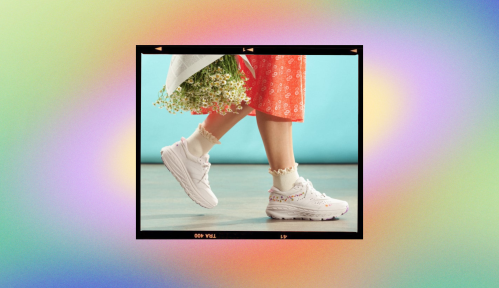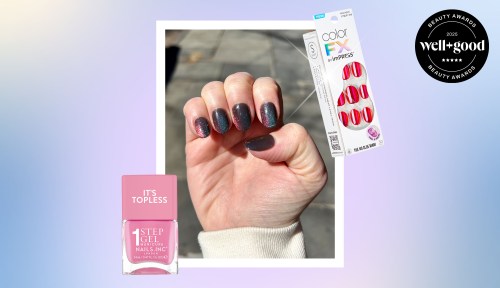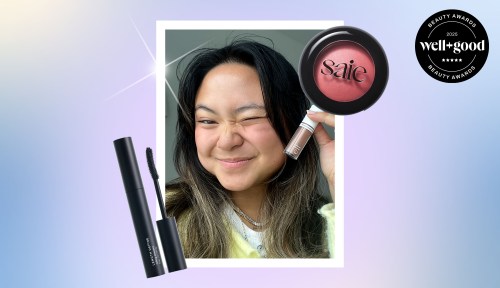When you go in for a check-up at the doctor, there are things they usually do: tap your knees for proof that your reflexes are working, check your blood pressure and heart rate, press your tongue down with a compress to peer at the back of your throat. When it comes to your mental health, you can use context clues and insightful questions to check up on your head and (proverbial) heart, too, according to Minaa B., LMSW, licensed social worker, author, therapist, and speaker.
Experts in This Article
Ling Lam, PhD, MFT, professor in counseling psychology, a licensed therapist, and author of the TedX talk “The Power of Feeling Safe,”
“It’s common for us to schedule a routine visit to the doctor when we aren’t feeling our best, so it should be common for us to check in with our mental health to ensure that we are physically, mentally, and emotionally in tune,” she explains. Mental health check-ins are also exceptionally important when 19.86 percent of adults in the U.S. are experiencing a mental illness of some kind, according to Mental Health America. That amounts to about 50 million people, with 4.91 percent of them experiencing a severe mental illness.
It’s true: a 2018 poll conducted by Well+Good found that of the 2,700 people surveyed, 95 percent struggle with stress, and 92 percent struggle with anxiety. However, 20 percent had never shared their feelings about either because they believe such mental obstacles are no big deal. The daily grind has a way of distracting from the basic human need to take an emotional time-out.
However, you definitely deserve the space to care for yourself, mentally and physically. It’s not always easy to gauge something you can’t see before your eyes like you might see a cut or scrape or rash, but your mental health deserves to be checked on, too. The following questions from Minaa B.’s practice as a therapist can help you explore how you’re feeling, what your needs are, and how to go meet them.
Mental health and the care of it is so important, but sometimes it can be intimidating and confusing. It’s okay to have questions and to ask them. In case you were looking for answers, we asked Ling Lam, PhD, MFT, professor in counseling psychology, a licensed therapist, and author of the TedX talk “The Power of Feeling Safe,” about the mental health questions he gets most frequently—and what the truth about the answers is.
Here are some of the most common questions Dr. Lam gets in his work.
“Is anxiety depression a brain disease?”
Typically, there is some sort of genetic predisposition, but our experience is so important, Dr. Lam says. Our brain is wired based on our experiences in life. A lot of anxiety and depression are not necessarily caused by genetics; humans’ cruelty to other people can heavily contribute. The world is really hard to exist in and that, in my professional opinion and what research shows, really contributes to mental illness and hardship.
“Are me and my partner compatible?”
A lot of people ask me these questions. My answer is always that compatibility is a factor like personality and interests—those benefits a relationship. However, it’s not as important as a desire to connect and grow. The willingness to grow and evolve in the relationship and accept each other is more important.
“Nothing bad happened in my childhood—why do I struggle with mental health?”
This is a really common question. People think that because they didn’t experience something super horrible—there’s no reason to have anxiety or depression. But the thing is that depression and anxiety come from things like believing we are not safe or not loved. These lessons, or wounds, come from somewhere.
The explanation here is that there are two kinds of trauma. There’s trauma by commission where things actively happened that caused suffering and trauma like abuse, injuries, natural disasters, loss, accidents, or assault. Then there is trauma by omission that people aren’t acknowledging. This refers to things that you should’ve had: love, acceptance, structure, stability, comfort, care, and calm. The lack of receiving acceptance, care, or things that you need is also trauma just because you didn’t experience something directly traumatizing, he says.
“Should I take medication?”
I am not a psychiatrist, and so when I get this question, I invite people to see a psychiatrist, says Dr. Lam. However, when I recommend this, I always say that you should try to see someone that will listen to what’s going on with you, your story, and your needs. There are a lot of professionals that, unfortunately, will give you a script in five minutes. That’s not the care that will help you get to the best place. Remember that your care is supposed to work best for you.
“Which kind of therapy is the best for which kind of condition?”
So there are a lot of different types of therapy like dialectical behavioral therapy (DBT) or cognitive behavioral therapy (CBT), and narrative therapy. Dr. Lam explains that these types are important and have success for different conditions, but research shows that the therapeutic relationship is actually more important than the therapy modality.
“When I go to therapy, should the therapist give me advice?”
I get this question a lot, says Dr. Lam. It makes sense that if you’re not feeling well—you’d want advice. But the thing about a therapist is that you’re working together to be able to sit in the driver’s seat of your life and mind. “Therapists have a lot of expertise and training, but the primary intention of a therapist is to help a client activate their internal resources, strengths, and sense of agency,” says Dr. Lam.
“Is depression or anxiety permanent?”
It depends on the circumstances of the person, says Dr. Lam. It’s true that there is treatment-resistant depression. “As a therapist, I have a very optimistic view. Inside each person is a longing to heal and feel better, I understand that people have chronic struggles. I have the seed of hope that people have the possibility that they can improve and heal. I can hope for them, even if they don’t. Hope is a healing ingredient, and when we lose it, it is hard to improve,” says Dr. Lam.
Here are some ways to check in on your own mental health
1. How am I feeling today (mentally and physically)?
“Did you know that when you are dealing with a mental illness like depression, trauma, and anxiety, not only does it affect you mentally, but you can feel it in your body? [It] manifests in ways like headaches, stomach aches, dizziness, and more,” writes Minaa B.
You can be stressed without necessarily knowing it, so check for both mental and physical factors before moving about your day. Physiological sensations can help you assess what’s going on and what you might need. If you’re struggling with depression, sometimes you might not feel as hungry as usual, according to the Mayo Clinic. Using information like when you last ate to inform your decisions is also useful when your bodily sensations might not be super helpful.
2. What’s taking up my headspace, and is it affecting my mental health?
Part of mindfulness is taking a step back and evaluating exactly what you’re giving your attention to. Make sure you take some deep breaths, in for four and out for 4, and think about what you’ve been focusing on today, she adds. Have you been festering about a conflict with a roommate or fretting about an upcoming meeting?
These can be activating for your nervous system, but taking a step back and writing a list of your priorities and things that you know to be true can help you ground yourself.
3. When was the last time I drank water or ate?
Again, your body and mind can play tricks on you when you’re not feeling your best and vice versa. Have you ever felt like the world was about to cave in beneath your feet, only to eat a sandwich and feel like you were brought back to life? Hunger can cause a lot of emotional symptoms, according to the Mayo Clinic. Food and water are unavoidable human needs that you will undoubtedly benefit from meeting. Even if you can’t solve a super upsetting bill or a fight with a partner, taking control of what you do can help you feel better physically and give you a sense of agency over your day.
4. Am I tired?
“Being sleep deprived doesn’t do our health any favors. It’s okay to rest. Your mind is depending on it,” writes the coach. Since so many of us are TAAT (tired all the time), this question may be answered with an internal scream of “yes! absolutely!” In that case, clear your evening plans and make sleep the priority.
5. Can I step out of this if it is harming me?
Previously, Minaa B. told Well+Good that she’s not afraid to remove herself from a situation that does her mental health a disservice and stop to ask some of these mental health questions. This includes setting boundaries on the job. “I’m someone whose work has triggered anxiety and depression, and when that happens, I’m out of the door. I’m very firm with boundaries,” she said. It’s your right to do the same.
6. What can I do to bring myself joy today?
Choosing positive acts of care or ways to spend your time can help you feel better in the moment and over time. Minaa B. is a big proponent of things that bring her joy, so much so that her wellness strategy is listed prominently on her website. She includes things like walking her dog, reading novels, and asking for help when she needs it. Coming up with your own wellness strategy (like asking yourself some mental health questions) of things that always reliably make you feel better can make you feel more prepared when a dark day strikes.
At the end of the day, asking questions about your mental health and mental health, in general, is really important. Being curious and reducing the stigma of discussing mental health challenges is a major way that people can feel better. Checking in on yourself and others is so important to everyone’s mental health.
Oh hi! You look like someone who loves free workouts, discounts for cutting-edge wellness brands, and exclusive Well+Good content. Sign up for Well+, our online community of wellness insiders, and unlock your rewards instantly.
Sign Up for Our Daily Newsletter
Get all the latest in wellness, trends, food, fitness, beauty, and more delivered right to your inbox.
Got it, you've been added to our email list.











